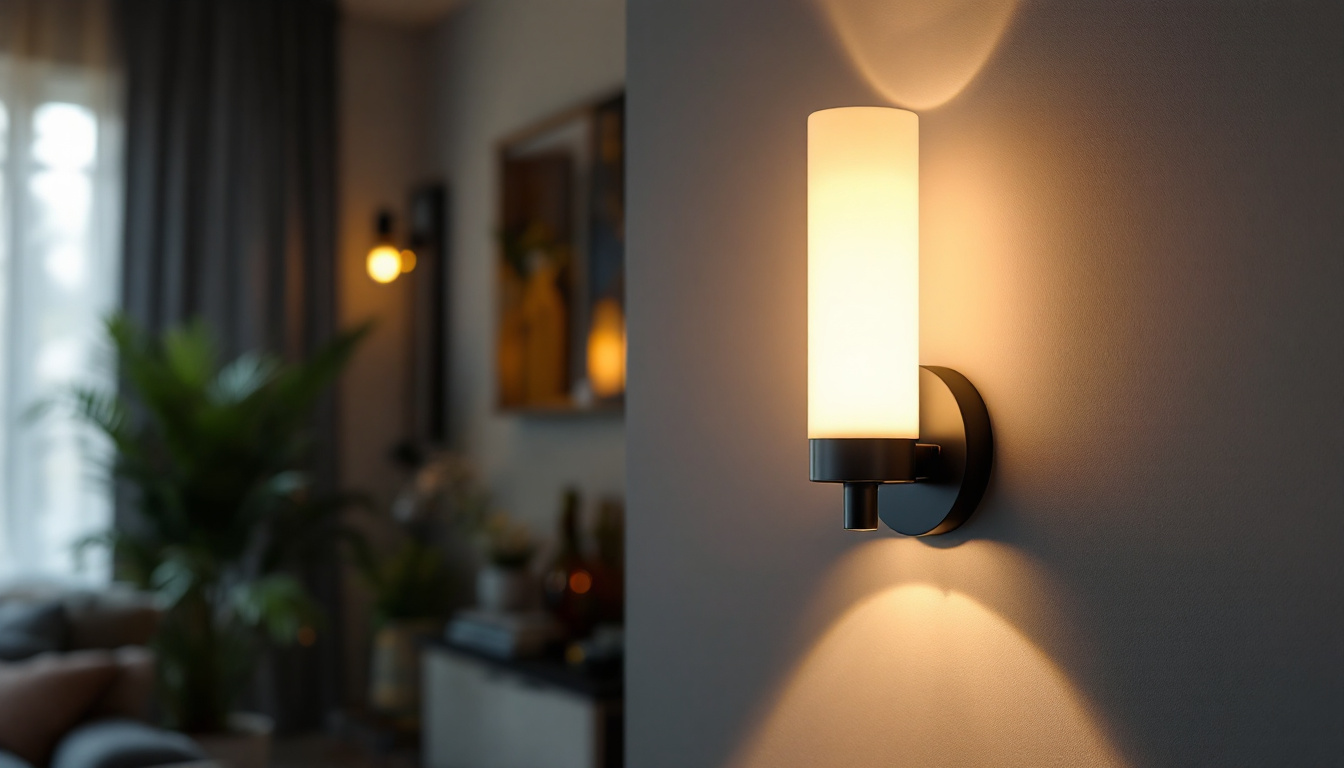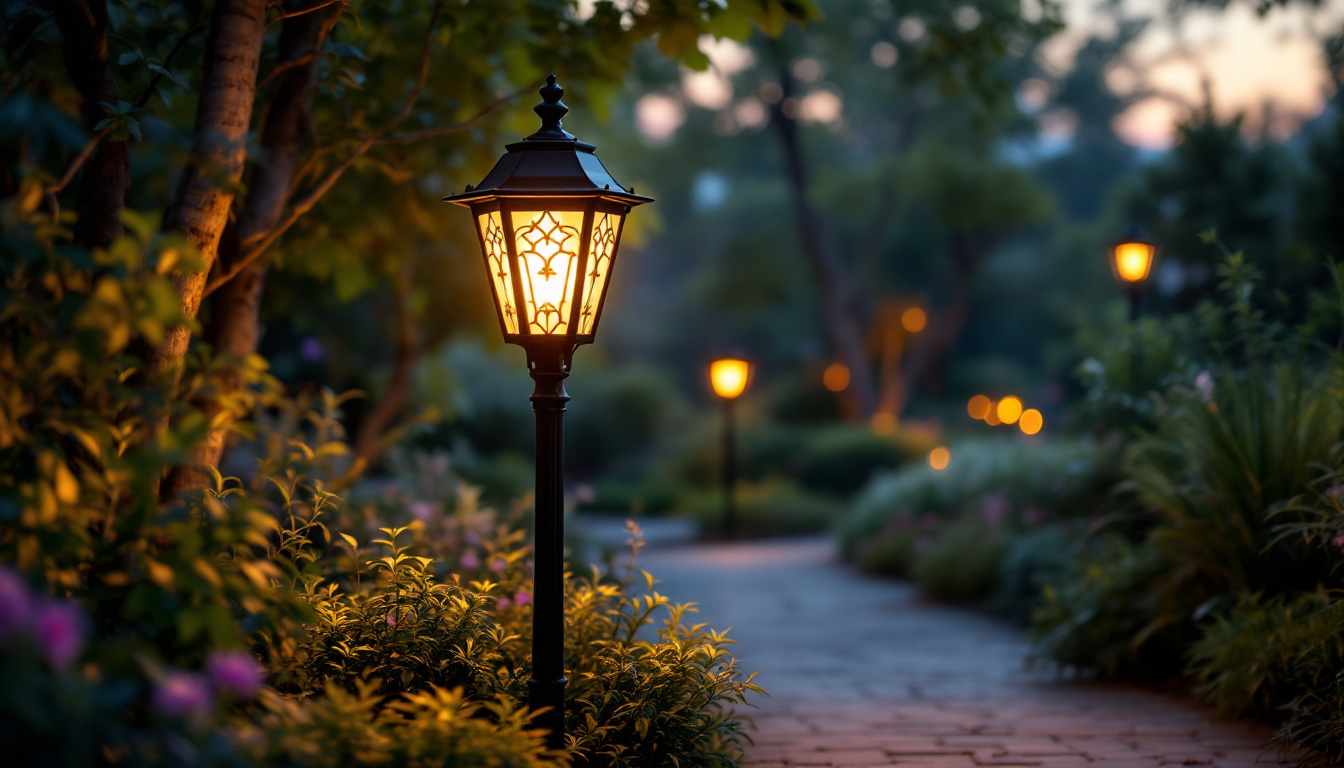
As the demand for sustainable and energy-efficient solutions continues to rise, solar lighting has emerged as a popular choice for backyard illumination. For lighting contractors, understanding compliance regulations and best practices in solar lighting installation is crucial. This article delves into the essential aspects of backyard solar lighting, focusing on compliance, installation techniques, and the benefits of solar solutions.
Compliance with local regulations is a fundamental aspect of any lighting installation project. Solar lighting systems, while often seen as a straightforward solution, come with their own set of compliance requirements that contractors must navigate.
Each municipality may have specific codes governing the installation of outdoor lighting, including solar-powered systems. These regulations can encompass aspects such as the height of fixtures, light pollution restrictions, and energy efficiency standards. It is essential for contractors to familiarize themselves with these local codes to ensure that their installations meet all necessary legal requirements.
Additionally, some areas may have incentives or rebates for using renewable energy sources, which can be beneficial for both contractors and clients. Understanding these local incentives can provide a competitive edge and promote the adoption of solar lighting solutions. For instance, certain municipalities may offer tax credits or grants that can significantly reduce the overall cost of installation, making solar lighting an even more attractive option for property owners. Contractors who stay informed about these financial opportunities can better advise their clients, leading to a more successful project outcome.
Safety is paramount in any lighting installation. Solar lighting systems must comply with safety standards set forth by organizations such as the Underwriters Laboratories (UL) or the International Electrotechnical Commission (IEC). These standards ensure that the products used are safe for public and private use, reducing the risk of electrical hazards.
Contractors should verify that the solar lighting products they choose are certified and meet these safety standards. This not only protects the contractor from liability but also assures clients of the quality and safety of the installation. Moreover, it is advisable for contractors to conduct regular safety audits and maintenance checks on installed systems to ensure ongoing compliance with safety standards. This proactive approach not only enhances the longevity of the lighting systems but also fosters trust and reliability in the contractor-client relationship.
As solar lighting is inherently designed to be environmentally friendly, contractors should also consider the ecological impact of their installations. This includes selecting products made from sustainable materials and ensuring that the installation process minimizes disruption to the local ecosystem.
Furthermore, educating clients on the environmental benefits of solar lighting can enhance their appreciation for the project and promote a more sustainable approach to outdoor lighting. For example, solar lighting reduces reliance on fossil fuels and lowers greenhouse gas emissions, contributing positively to climate change mitigation efforts. Additionally, contractors can highlight how solar lighting can support local wildlife by minimizing light pollution, which is crucial for preserving natural habitats. By framing the installation as not just a lighting solution but as a step towards environmental stewardship, contractors can engage clients in a meaningful dialogue about sustainability and the role of renewable energy in their communities.
Proper installation techniques are crucial for maximizing the efficiency and longevity of solar lighting systems. Contractors must be well-versed in the best practices for installing these systems to ensure optimal performance.
Before installation, a thorough site assessment is essential. This involves evaluating the area for sunlight exposure, potential obstructions, and the overall layout of the landscape. Solar lights require direct sunlight to charge effectively, so identifying the best locations for installation is key.
Contractors should also consider the aesthetic aspects of the installation, ensuring that the lights complement the landscape design while providing adequate illumination. This balance between functionality and aesthetics can significantly enhance a client’s satisfaction with the final result.
Once the site assessment is complete, the next step is to determine the proper placement and orientation of solar lights. Ideally, solar fixtures should be positioned in areas that receive full sunlight for most of the day. This may involve adjusting the angle of the lights to ensure they capture maximum sunlight exposure.
Additionally, contractors should be mindful of the spacing between fixtures. Proper spacing not only ensures adequate illumination but also prevents light pollution, which is a growing concern in many communities.
While solar lighting systems are generally low-maintenance, contractors should educate clients on the importance of regular upkeep. This includes cleaning the solar panels to remove dirt and debris that can hinder performance, as well as checking the batteries for optimal function.
Providing clients with a maintenance schedule can enhance their experience and prolong the lifespan of the solar lighting system. This proactive approach can also lead to repeat business and referrals as satisfied clients share their positive experiences.
Solar lighting offers numerous advantages that make it an attractive option for both contractors and clients. Understanding these benefits can help contractors effectively communicate the value of solar solutions to potential customers.
One of the most significant benefits of solar lighting is its cost efficiency. Once installed, solar lights require little to no electricity, leading to substantial savings on energy bills. Additionally, many solar lighting products are designed to be durable and long-lasting, reducing the need for frequent replacements.
For clients looking to reduce their long-term costs, solar lighting presents an appealing option. Contractors can emphasize this financial aspect during consultations, helping clients understand the potential return on investment.
Solar lighting systems contribute to a reduction in carbon footprints, making them an environmentally responsible choice. By harnessing renewable energy from the sun, these systems help decrease reliance on fossil fuels and lower greenhouse gas emissions.
Contractors should highlight the positive environmental impact of solar lighting to clients who prioritize sustainability. This can be particularly effective in communities that value eco-friendly practices and are looking for ways to contribute to a healthier planet.
Solar lighting comes in a variety of styles and designs, making it a versatile option for different landscaping needs. From pathway lights to decorative garden fixtures, contractors can offer clients a range of choices that suit their aesthetic preferences.
Moreover, the ease of installation allows for creative lighting solutions that can enhance the beauty of outdoor spaces. Contractors can showcase their design skills by integrating solar lights into existing landscapes, creating visually appealing and functional outdoor environments.
While the benefits of solar lighting are numerous, contractors may encounter challenges during the installation process. Being aware of these potential obstacles can help in planning and executing successful projects.
Weather conditions can significantly impact the performance of solar lighting systems. Extended periods of cloudy or rainy weather can reduce the amount of sunlight available for charging, leading to diminished performance. Contractors should set realistic expectations with clients regarding the performance of solar lights during adverse weather conditions.
In areas prone to inclement weather, it may be beneficial to recommend solar lights with built-in battery backups or hybrid systems that can switch to grid power when necessary. This ensures that clients have reliable lighting regardless of weather conditions.
Although solar lighting can lead to long-term savings, the initial investment can be a barrier for some clients. Contractors should be prepared to discuss financing options or government incentives that can help offset these costs.
By providing clients with a comprehensive understanding of the financial aspects, contractors can alleviate concerns and encourage the adoption of solar lighting solutions.
As with any technology, solar lighting systems have limitations. Battery life, light output, and charging efficiency can vary among products. Contractors should stay informed about the latest advancements in solar technology to offer clients the best options available.
Additionally, educating clients about the limitations of solar lighting can help manage expectations and foster trust in the contractor-client relationship.
The solar lighting industry is continuously evolving, with new technologies and trends emerging regularly. Staying informed about these developments can position contractors as leaders in the field.
smart technology is making its way into solar lighting, allowing for enhanced control and efficiency. Features such as motion sensors, remote control, and integration with smart home systems are becoming increasingly popular. Contractors should consider offering these advanced solutions to clients looking for modern, tech-savvy options.
These smart systems not only provide convenience but can also improve energy efficiency by ensuring that lights are only activated when needed.
Advancements in battery technology are leading to longer-lasting and more efficient solar lighting systems. New battery types can hold more charge and provide consistent lighting even during extended periods of low sunlight. Contractors should keep abreast of these developments to offer clients the most reliable products available.
By incorporating the latest battery technologies, contractors can enhance the performance and reliability of their solar lighting installations.
As the push for renewable energy sources continues, integrating solar lighting with other sustainable technologies, such as wind or hydro power, may become more common. This holistic approach to energy solutions can provide clients with a comprehensive system that maximizes efficiency and sustainability.
Contractors who embrace these trends will be well-positioned to meet the evolving needs of their clients and contribute to a greener future.
Backyard solar lighting presents a wealth of opportunities for lighting contractors. By understanding compliance requirements, mastering installation techniques, and staying informed about industry trends, contractors can effectively meet the needs of their clients while promoting sustainable practices.
As the demand for solar solutions continues to grow, lighting contractors who invest in their knowledge and skills will be well-equipped to thrive in this dynamic market. Embracing solar lighting not only enhances outdoor spaces but also contributes to a more sustainable future for all.
Ready to illuminate your projects with the best solar lighting solutions? Look no further than LumenWholesale. Our extensive selection of spec-grade lighting products ensures that you have access to the highest quality options for your backyard lighting installations. With unbeatable wholesale prices and the convenience of free shipping on bulk orders, you can trust that you’re getting premium lighting at the best value. Don’t let middleman markups affect your bottom line. Choose LumenWholesale for quality, affordability, and hassle-free service. Wholesale Lighting at the Best Value is just a click away.

Discover why MR16 LED bulbs are a game-changer for lighting contractors.

Discover the common pitfalls lighting contractors face when installing LED wall sconces.

Discover essential tips for lighting contractors on selecting and installing outdoor electrical boxes with covers.

Discover expert tips and strategies for lighting contractors to excel in outdoor lamp post installations.